The Bush family has cashed in on friendship with former Chinese President Jiang Zemin, the architect of the Tiananmen Square massacre, for generations, Peter Schweizer documents in his new book Red-Handed: How American Elites Get Rich Helping China Win.
Schweizer, a veteran journalist documenting corruption in the U.S. government, has dedicated his new book to the sprawling financial ties between American elites and the Chinese Communist Party (CCP) – ties that have strengthened America’s most powerful geopolitical foe while undermining its top industries and threatening free speech and democracy.
Among the most longstanding and lucrative ties binding CCP elite to America’s wealthy is that forged by former President George H.W. Bush, who, Schweizer recalls in the book, was so beloved while serving as America’s top diplomat in China that then-President Deng Xiaoping “threw him a going-away party” in 1975, calling the Bushes “old friends.”
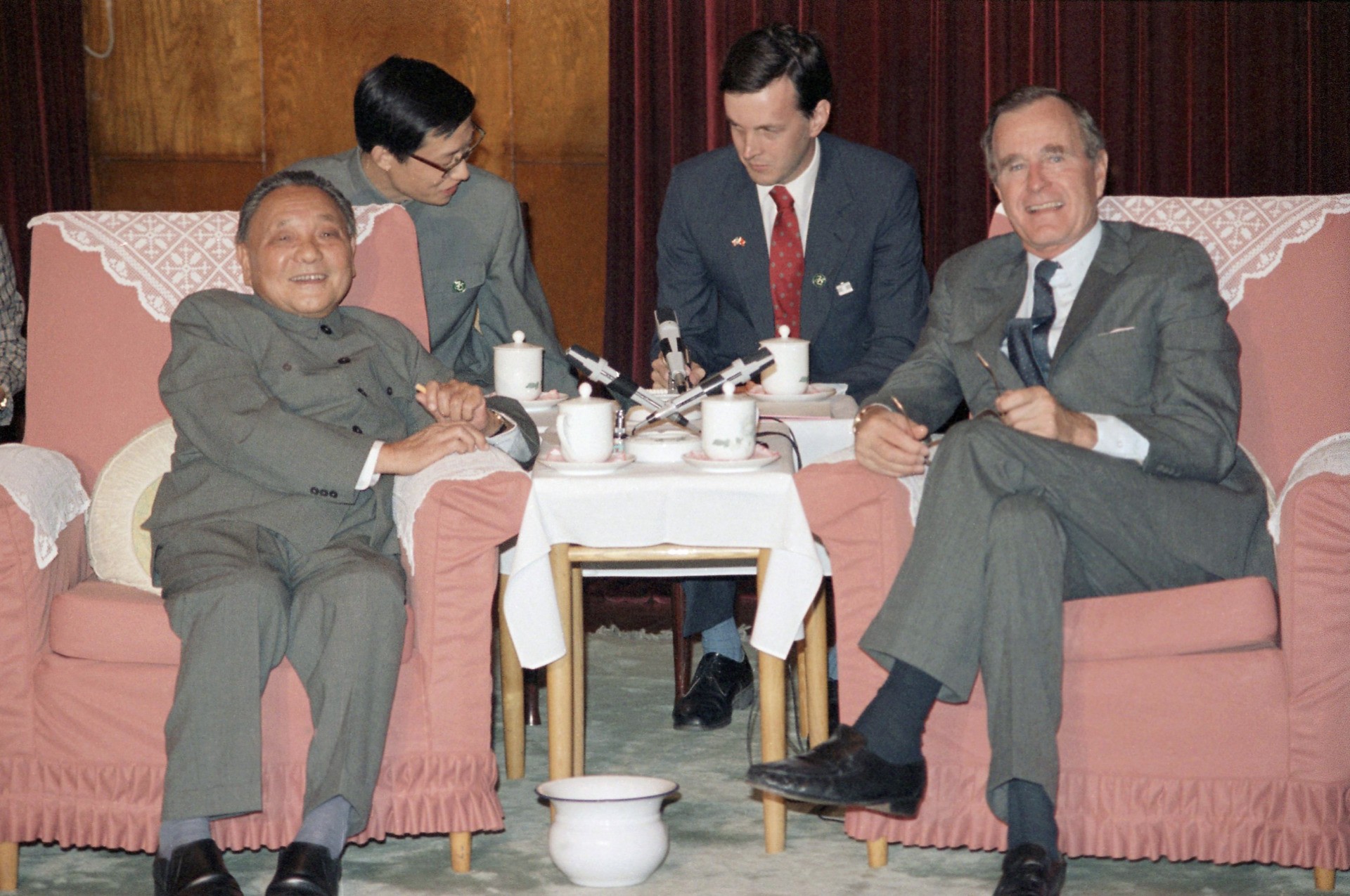
U.S. Vice-President George H. W. Bush, right, and China’s top leader, Deng Xiaoping meet in Beijing, China, Oct. 13, 1985. Interpreters in center are unidentified. (AP Photo/Neal Ulevich)
The relationship deepened under Deng’s successor, Jiang Zemin. Zemin was mayor of Shanghai when the Tiananmen Square massacre occurred in 1989, but took over as chairman of the Chinese Communist Party by the end of June, the month in which the massacre occurred. While not in charge when it actually happened, he became the face of the massacre for enthusiastically defending it in public and heavily censoring any mention of it within China.
“We do not believe that there was any tragedy in Tiananmen Square,” Jiang told reporters in September 1989. “What actually happened was a counterrevolutionary rebellion aimed at opposing the leadership of the Communist Party and overthrowing the socialist system.”
The Chinese regime has actively repressed attempts to compile death and injury totals in the Tiananmen Massacre, making the true total unknown. Scholars believe that the Chinese Communist Party killed as many as 10,000 unarmed pro-democracy protesters in the incident, many of them run over with tanks or killed in hospitals after the military injured them, according to eyewitnesses.
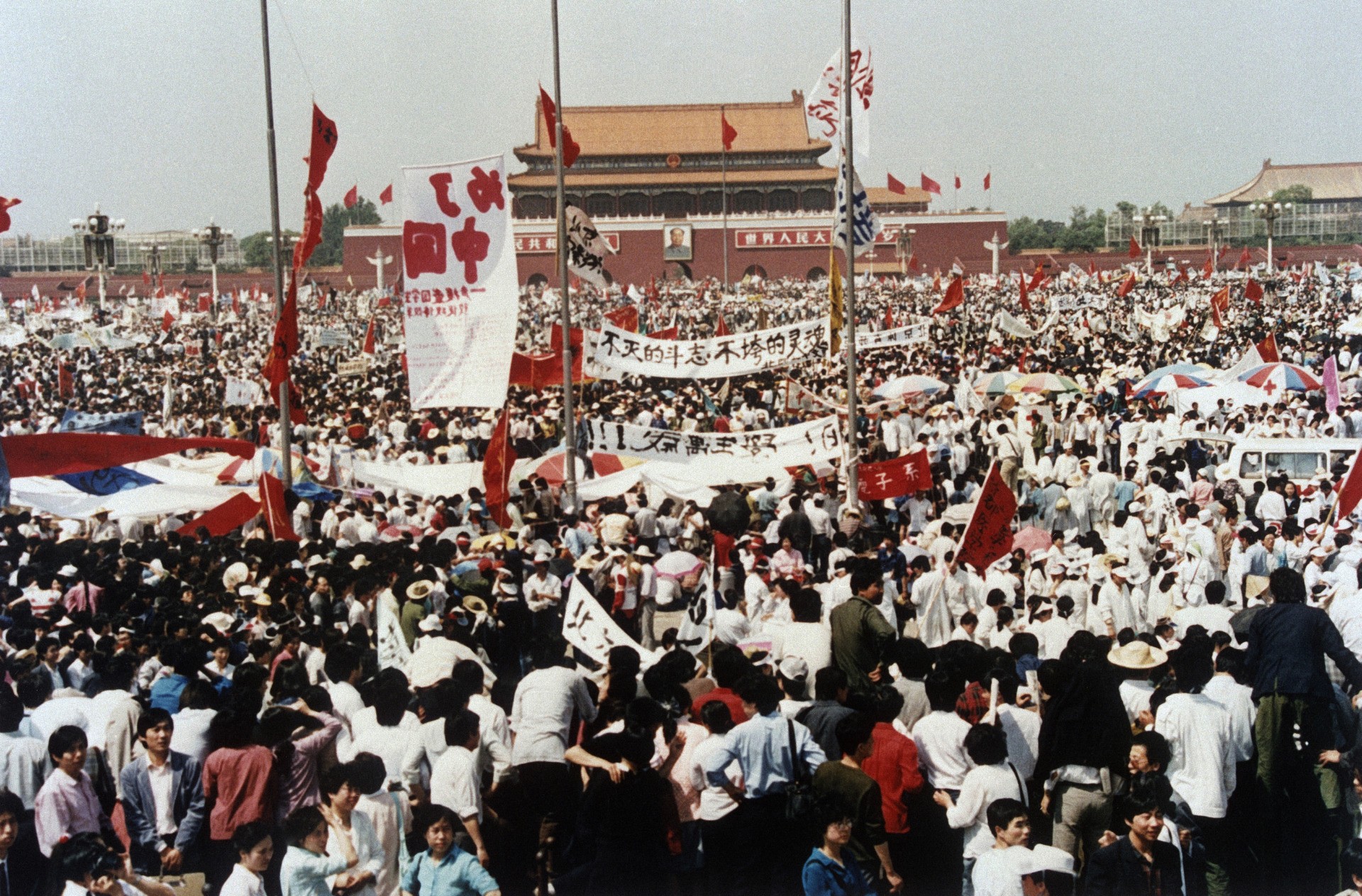
Thousands of pro-democracy protesters rally peacefully in Tiananmen Square at the height of the protest movement on May 17, 1989. (AP Photo/Sadayuki Mikamii)
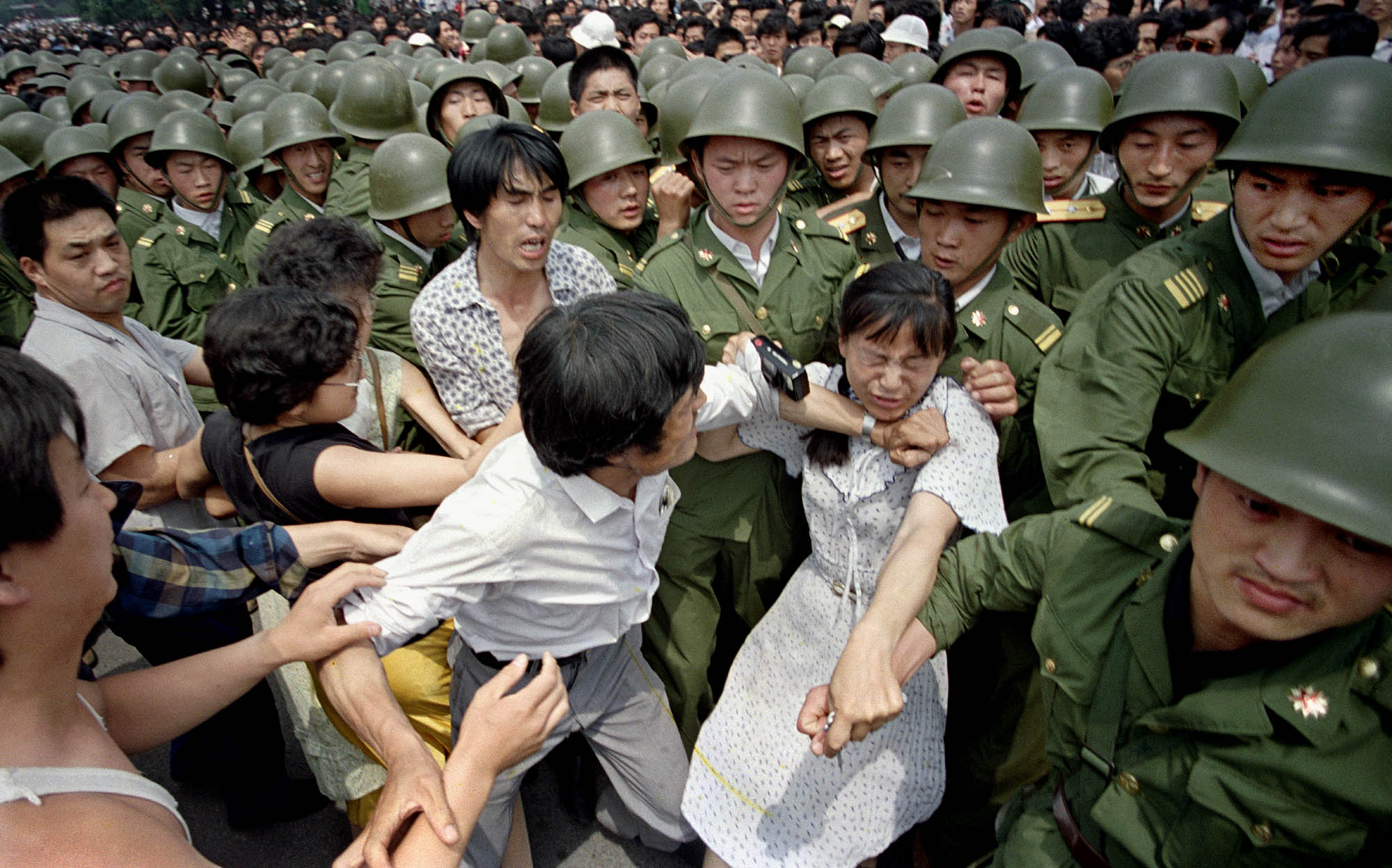
A young woman is grabbed by Chinese soldiers trying to remove her and other pro-democracy protesters from Tiananmen Square on June 3, 1989. (AP Photo/Jeff Widener)
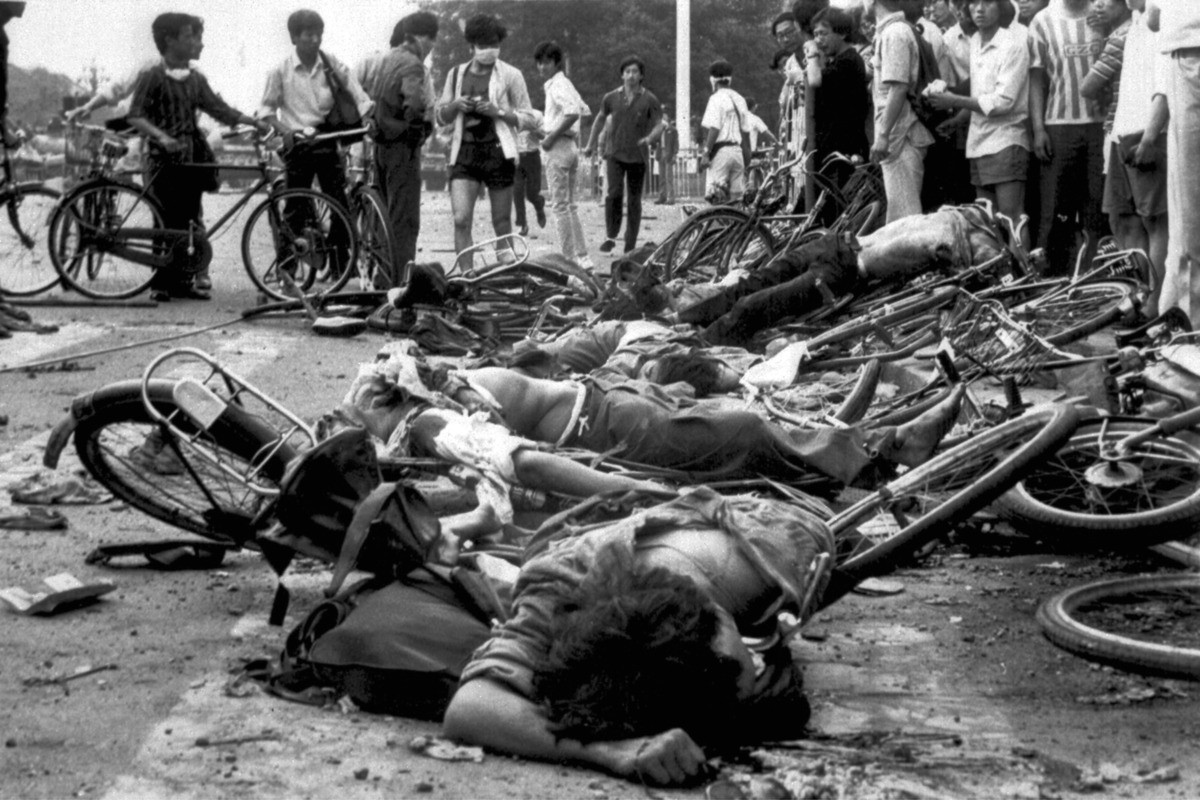
The bodies of dead Chinese civilians lie among mangled bicycles near Tiananmen Square on June 4, 1989, after China’s communist regime violently suppressed a pro-democracy protest in what became known as the Tiananmen Square massacre. (AP Photo)
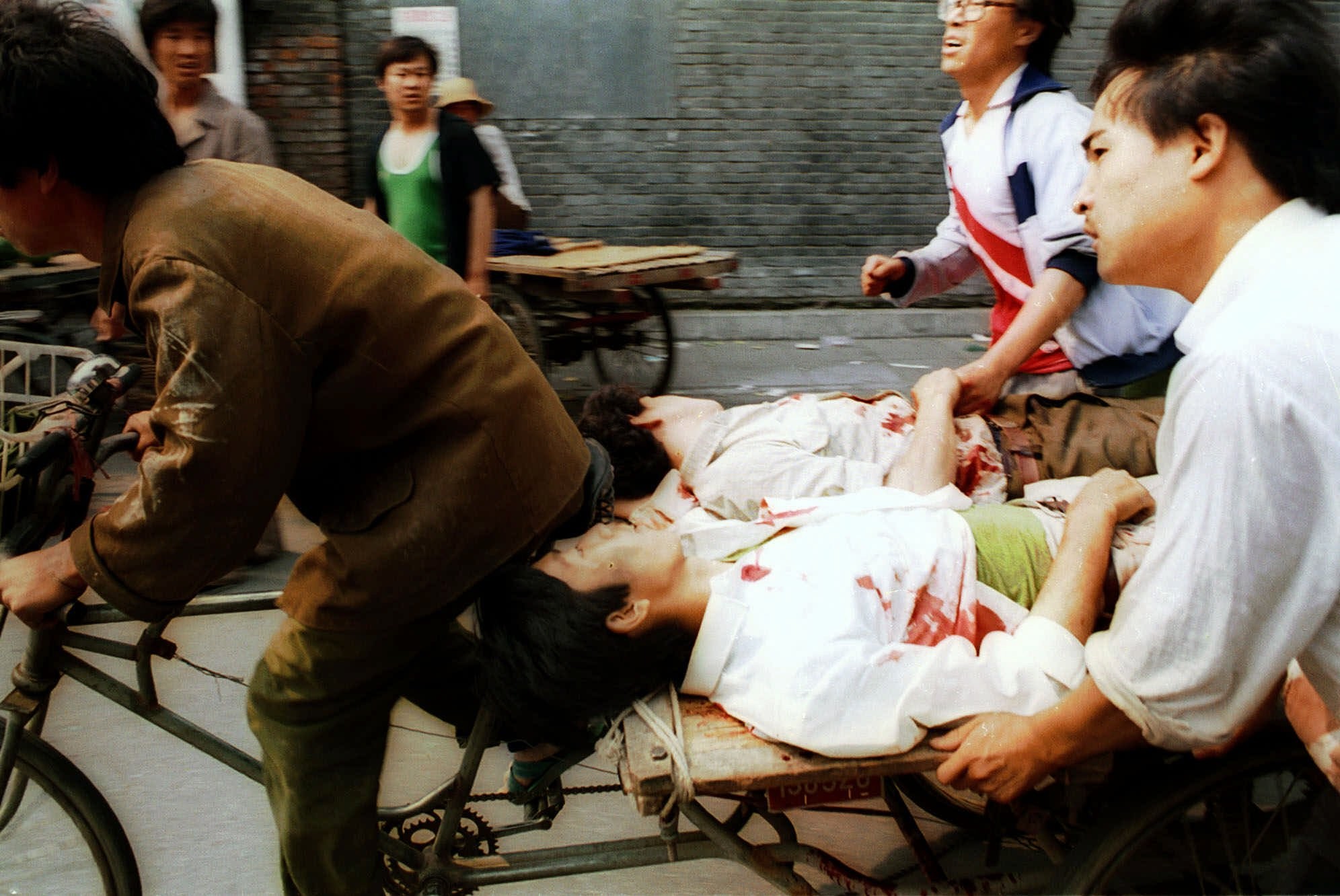
A rickshaw driver pedals victims of the Tiananmen Square massacre to a nearby hospital on June 4, 1989. (AP Photo/Liu Heung Shing)
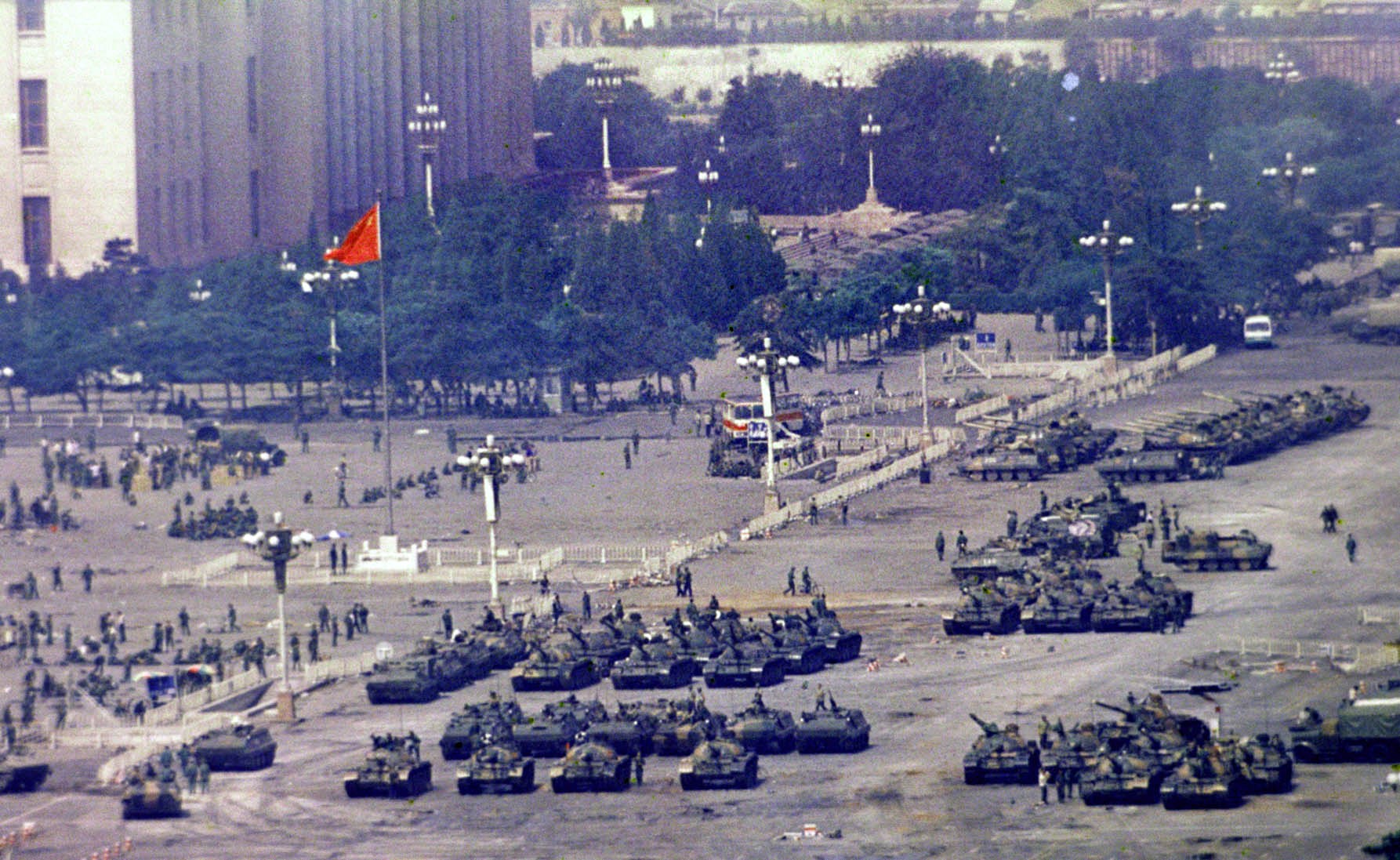
Chinese soldiers and tanks gather in Beijing on June 5, 1989, one day after the Tiananmen Square massacre. (AP Photo/Jeff Widener)
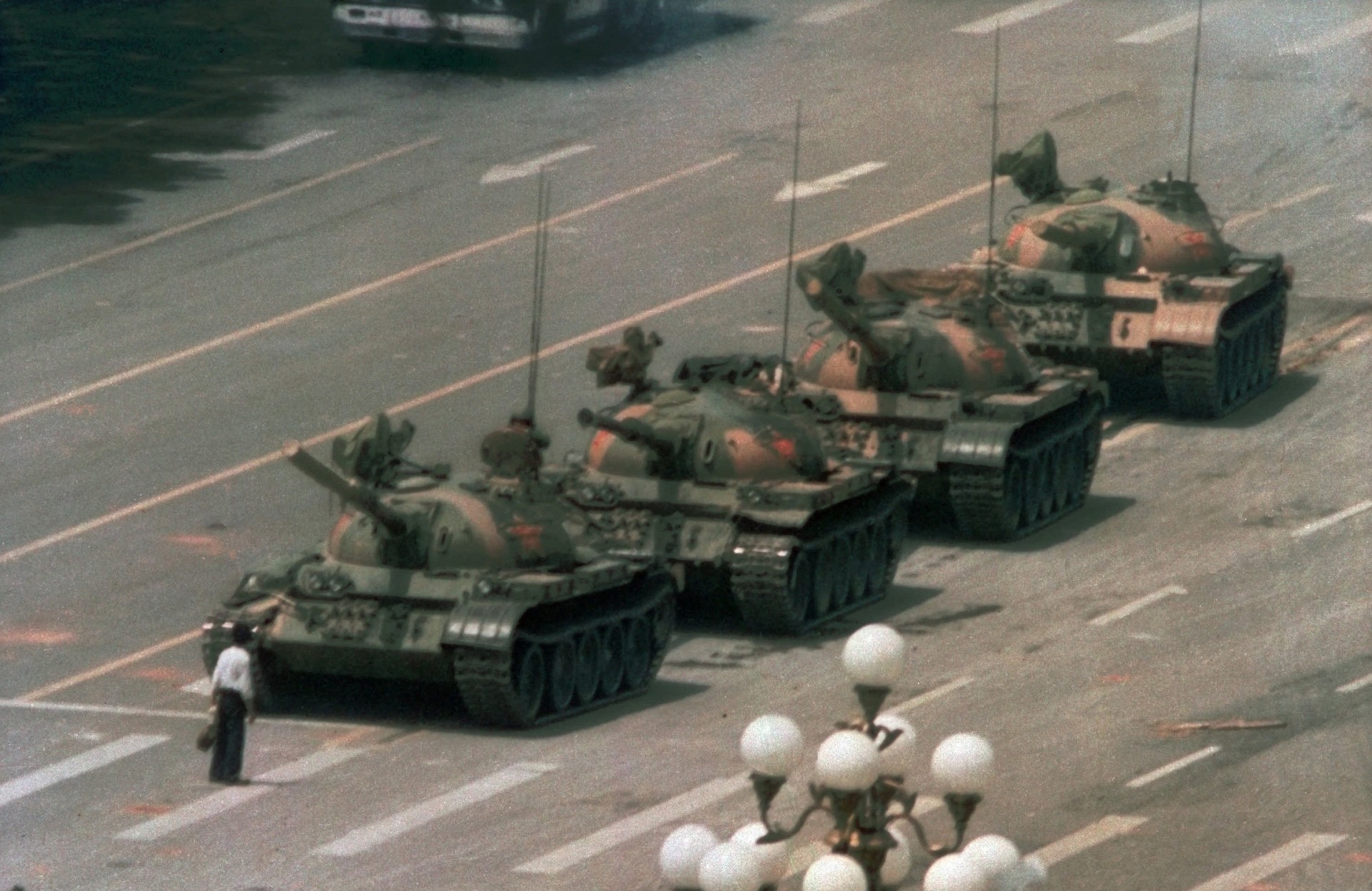
A Chinese man stands alone to block a line of tanks heading towards Tiananmen Square on June 5, 1989, one day after the Tiananmen Square massacre. This courageous unknown man became known to the world simply as “Tank Man.” (AP Photo/Jeff Widener)
Before he became president, the Bush family benefitted from a relationship with Jiang during his tenure as mayor of Shanghai, now China’s largest city. In 1989, as the elder President Bush settled into the presidency, his brother Prescott “closed a deal to build a golf club in Shanghai for foreign business executives” shortly before an official visit from his brother, Schweizer wrote. “It was one of the few golf courses in China that received government approvals required for construction.”
“The mayor of Shanghai during negotiations for the golf course, Jiang Zemin, became a Bush family friend who later became the premier of China,” Schweizer noted. Prescott had been forging business ties in the country since his brother became vice president under Ronald Reagan. At the time, the Cold War had taken up almost the entirety of America’s foreign policy conversation, with China a distant, at best, concern.
In the aftermath of the Tiananmen Square massacre, Schweizer notes that Prescott actively opposed sanctions on China over human rights concerns.
“There are big opportunities in China, and Americans can’t afford to be shut out,” Prescott Bush asserted. His brother, the president, imposed no meaningful policies to punish Jiang’s China for the slaughter.
A generation later, Jiang celebrated the election of his friend’s son, George W. Bush, to the presidency.
“The father of President [George W.] Bush, Bush Sr., came over to China many, many times and had many meetings with me in the seat you are now occupying,” Schweizer quotes Jiang as stating. “We believe Bush Sr. will definitely push Bush Jr. to bring U.S.-China relations to a new level.”
China joined the World Trade Organization in December 2001, while Americans were largely distracted by George W. Bush’s nascent War on Terror.
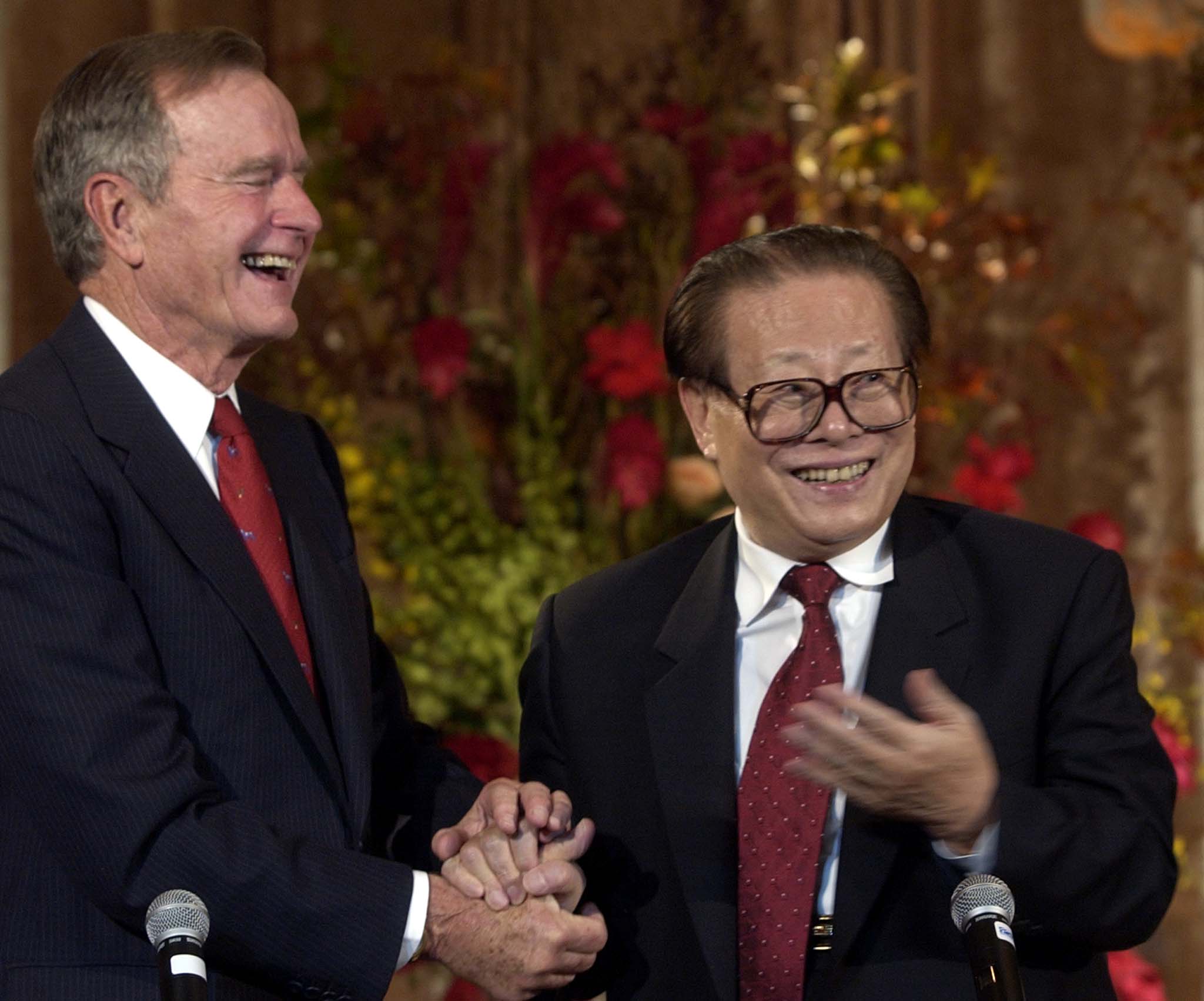
Jiang Zemin clasps hands with former President George H.W. Bush at a dinner for the Asia Society Greater Houston Partnership in Houston, Texas, on October 23, 2002. (DAVID J. PHILLIP/AFP via Getty Images)
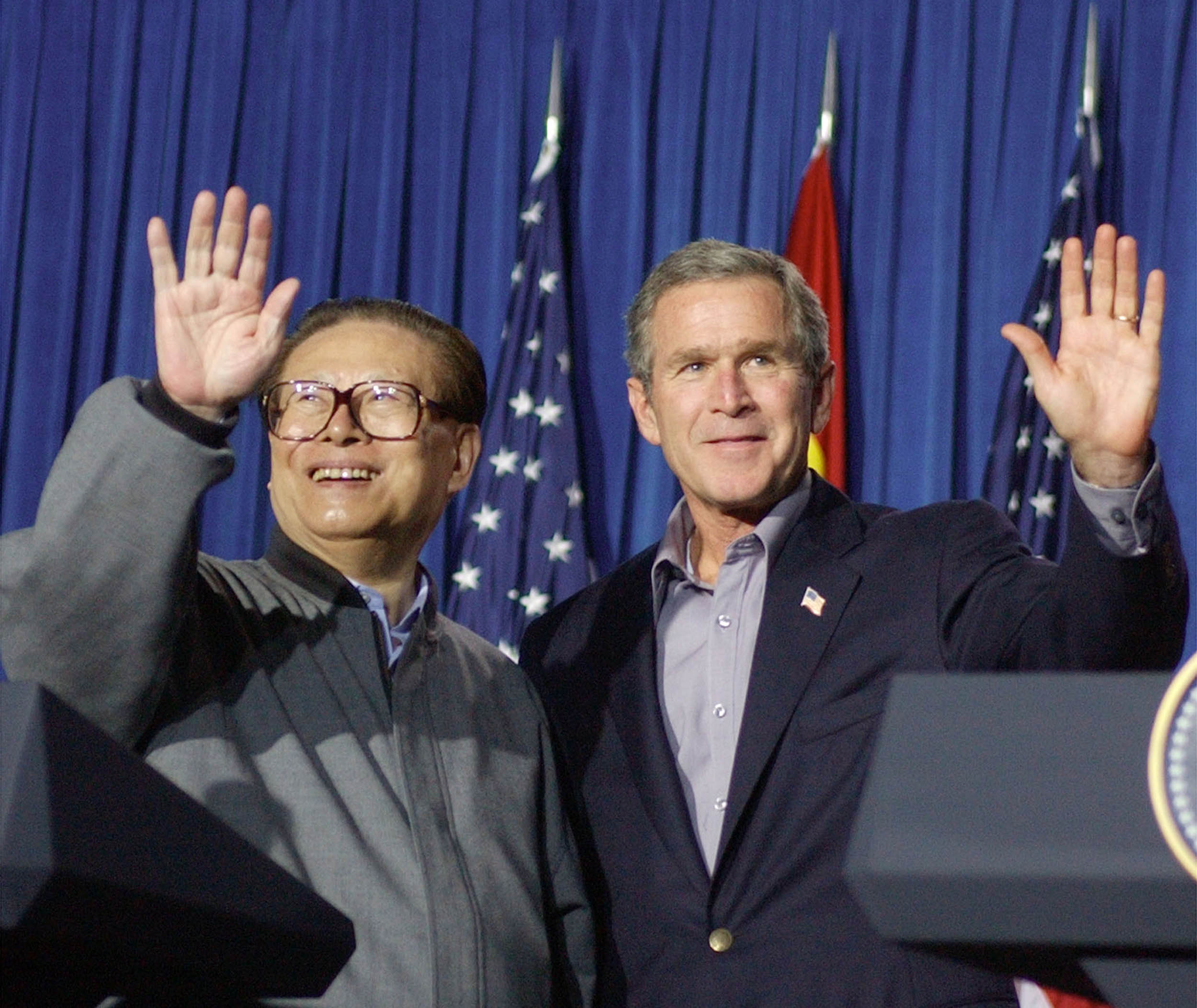
President George W. Bush and Chinese leader Jiang Zemin wave following a joint news conference on October 25, 2002 at the Bush family ranch in Crawford, Texas. (Rod Aydelotte/Getty Images)
In 2008, George W. Bush traveled to Beijing to be an enthusiastic spectator at that year’s Summer Olympics, ignoring similar calls at the time to those of today to boycott the event out of respect for the victims of communism. The Chinese state-run Global Times published an article this week resurfacing an interview Bush did at the time praising China effusively for its handling of the 2008 Summer Olympics, when here asserted he was “showing the Chinese people his respect by attending the Olympics.”
“During the George W. Bush presidency, a new generation of Bushes began securing deals with Chinese officials,” Schweizer writes in his book. “Neil Bush, brother of the president, signed a contract with a Chinese company called Grace Semiconductor Manufacturing. Bush had no background in computing, but the firm paid him $400,000 a year.”
“The company’s cofounder,” he observed, “just happened to be Chinese premier Jiang Zemin’s son.”
Neil Bush is now a propagandist for Chinese state media, publicly opposing American support for the anti-communist protests in Hong Kong in 2019.
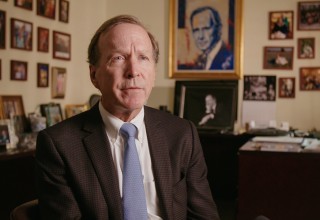
Neil Bush is seen during an interview on the Chinese state-owned media outlet People’s Daily Online in 2020.
Schweizer notes that in addition to being “a frequent fixture on Chinese state media,” Neil Bush also regularly “makes appearances before government-linked think tanks where he has made dubious and troubling comments about the nature of the Beijing regime.”
For example, in a speech in 2019 for the CCP-linked front organization China-U.S. Exchange Foundation (CUSEF), Neil Bush slammed the “America First” policies of the Trump administration. “China is not an economic enemy or existential national security threat to the United States,” he declared. “The demonization of China is being fueled by a rising nationalism in the U.S. that is manifested in anti-immigrant, anti-Chinese, pro-America-first rhetoric.”
Also in 2019, CUSEF became a major donor to the Bush China Foundation, pledging over a million dollars per year for a five-year period, Schweizer reports. He notes that this pledge “would constitute a large portion of the nonprofit’s income.”
Red-Handed: How American Elites Get Rich Helping China Win was published by HarperCollins. Schweizer is the president of the nonpartisan Government Accountability Institute (GAI) and a senior contributor to Breitbart News.
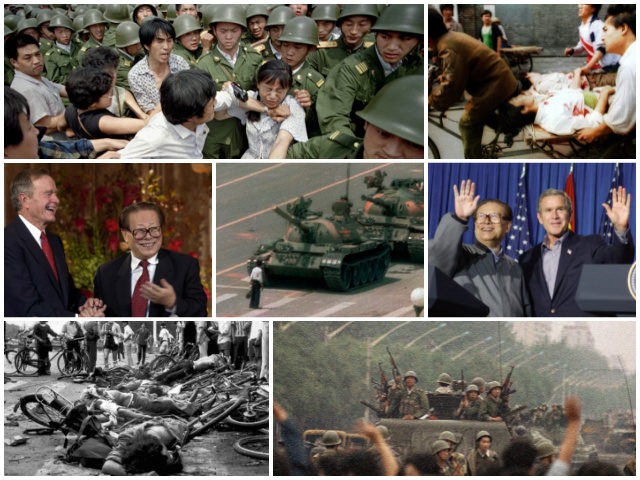
COMMENTS
Please let us know if you're having issues with commenting.